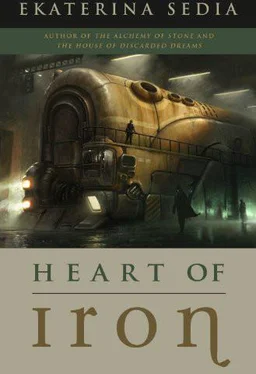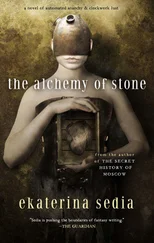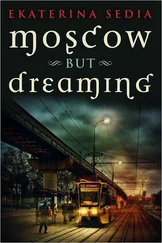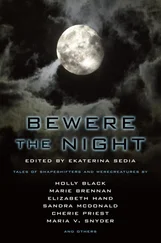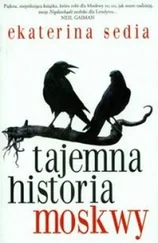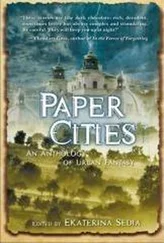Ekaterina Sedia
HEART OF IRON
To Chris, with all my love.
I have been blessed by several good fortunes, and I have no doubt that it is this constellation of luck and circumstance — at least, in part — that allows me to write these words. But foremost among my various and undeserved gifts I count my aunt Eugenia (Countess Menshova to most), for if it were not for her sardonic manner and low tolerance for insincerity, my debut at the St. Petersburg season — and my life thereafter — would have been very different.
Aunt Eugenia had taken care of my mother and me since my Papa had passed on to the mysterious afterlife I had only vague notions of at the tender age of eight. Unfortunately, Papa’s passing was not sudden. He had started to succumb to increasingly frequent coughing and fainting spells when I was just an infant. His failing health ensured that I had no memory of his face since he spent most of his time in Switzerland, in successively more expensive and desperate treatments. Time was not the only thing of which the disease robbed our family — the cost of the treatments was such that after my father’s passing at some Swiss resort, our fortune was nil, and entered the realm of negative numbers once his body was transported home and interred in the family crypt, just three hundred miles from St. Petersburg in the village of Trubetskoye.
My mother and I were destitute — save for the family manor house, which would have had to be sold at auction, were it not for my mother’s trusting love for her sister Eugenia, and Eugenia’s clear-eyed practicality. Aunt Eugenia had inherited most of the money on my mother’s side of the family. (Their father, an unsentimental man, decided that since my mother was married and Aunt Eugenia was not, that it was Eugenia who would benefit from being named heiress to the title and its monetary accompaniment.) She and my mother decided to pool their resources and save the manor from such indignity. Aunt Eugenia moved to Trubetskoye and set about buying back and administering the estate, hiring help, fixing the manor house, and leasing the land, all the while pouring her own not inconsiderable resources into the enterprise. In a sense, she took over Papa’s role in my young heart as well, and provided as admirable a model of masculine virtue as one could hope. The fact she wore a corset and a severe black dress was entirely coincidental.
After Papa’s death, my mother had faded both spiritually and physically, acquiring an inspired look one usually imagined in angels or ancient Christians, and while she was never much involved in the daily life of the estate to begin with, she withdrew even further away from mundanity, drifting through the brightly lit spacious rooms of the Trubetskoye Manor, pale fingertips of her left hand trailing along the light-colored paneling of the walls, while her right hand tortured either a lacy handkerchief or a string of rosary beads, a relic from some distant and Polish relative. She only took interest in the news of the St. Petersburg season. This, I think, is what kept her alive — her desire to see me at the Winter Palace, and gossip. She delighted in any news from Emperor Constantine’s court, as she delighted in all of his reforms — for he had never forgotten the Decembrists and their families, the ones to whom he owed his throne. He always sent us cards for Christmas and Easter, even after my Papa had passed on.
Ever since I was very young, I had known about reforms — everything changed so fast. Even Aunt Eugenia, interested in the news from the court only if it concerned her directly, used to say that the Emperor’s name was ill-fitted to his feverish rush to change change change the ancient injustices that plagued the land.
I was born seven years after the serfs were freed, but ten years later the adults were still talking about the families who had lost their fortunes. The serfs of the Trubetskoye estate were freed with the rest, but quite a few had remained as renters; the rest of the estate was worked by hired labor and, as Aunt Eugenia used to say, the raising of the downtrodden necessitated some sacrifice. Both she and my papa, when he was still alive, had foresight enough to send a few especially bright newly liberated young men to a vocational school. As a result the Trubetskoye now enjoyed its own engineering staff, enough to modify the machinery to do something Aunt Eugenia tried to explain to me on many occasions, but my mind invariably started to drift the moment she mentioned the dreaded word “efficiency.”
My education was also Aunt Eugenia’s concern — at least she was the one to interview the applicants for the enviable position of my governess, and she dealt with a long procession of French, German, and English noble-but-destitute maidens with her habitual ruthlessness. The winner who emerged from what I imagined as a gladiatorial pit was a long-nosed Englishwoman with closely set eyes who reminded me of a herring. Her name was Miss Chartwell, and from the day I was eight to the day I was eighteen she taught me English, cursive writing, natural history, and calculus.
Perhaps it is worth mentioning that my youth was not just a jumble of family strife and nation-wide reformism — there were also long summers spent playing in the fields, fishing, and befriending the children of the renters, and reading James Fenimore Cooper; there were equally long winters when frost painted the windows with fantastical white flowers while the coal fire blazed in the copper stove, and my mother and her sister sat amiably side by side: one knitting, the other checking over the accounts. They still live like this in my mind’s eye, the two aspects of contented domesticity — caring and wisdom, twin guardians of my childhood happiness.
I remember the second winter after Aunt Eugenia took over the household’s reins. I played with my mother’s cat Murka in front of the roaring fireplace. My mother looked up from her knitting, her dark-hooded eyes smiling at me, the skin around them folding into unfamiliar happy creases. “You’re getting so big,” she said, wistful. “Soon, I’ll be escorting you to the balls in St. Petersburg.”
I smiled, happy to see her thinking and talking of me instead of my dead papa. “Am I pretty, Mama?” I asked, coquettish.
She smiled still, but remained silent, and I could see that her eyes were troubled. She stopped rocking in her rocking chair.
Aunt Eugenia interfered with her usual bluntness. “There are better things to be than pretty, Sasha,” she told me. “Don’t you let anyone tell you otherwise.”
“What is better than beauty?” I asked, breathing deeply to stave off the impending heartbreak.
“Not being a fool,” Aunt Eugenia said. She was not a great beauty, with her long narrow chin and small beady eyes, her thin hair slicked into a paltry bun. But when she said it, I could see that she would have felt the same way if she were a golden-haired full-lipped nymph. “And if I were you, I would start paying attention to your lessons.”
“I am paying attention,” I said, indignant as only a ten-year-old child can be in the face of a just accusation.
Aunt Eugenia smiled then, her chin growing even pointier, and turned to my mother. “What do you think, Irina?”
My mother resumed her knitting and rocking; it was difficult to believe that this dark-haired, fragile beauty was related to Eugenia. “I think women in our family are late bloomers,” she said. “You watch and see — the girls who are pretty now will be sows in a few years, and my little frogling will become a pretty young lady. Remember the story of the Ugly Duckling?”
Aunt Eugenia and I nodded in unison. Eugenia smiled impishly and said, “Then again, some ugly ducklings grow up to be ugly ducks — not to be helped, that. But having a brain and a heart… well, that’s the sort of thing a young lady doesn’t have to wait for.”
Читать дальше
